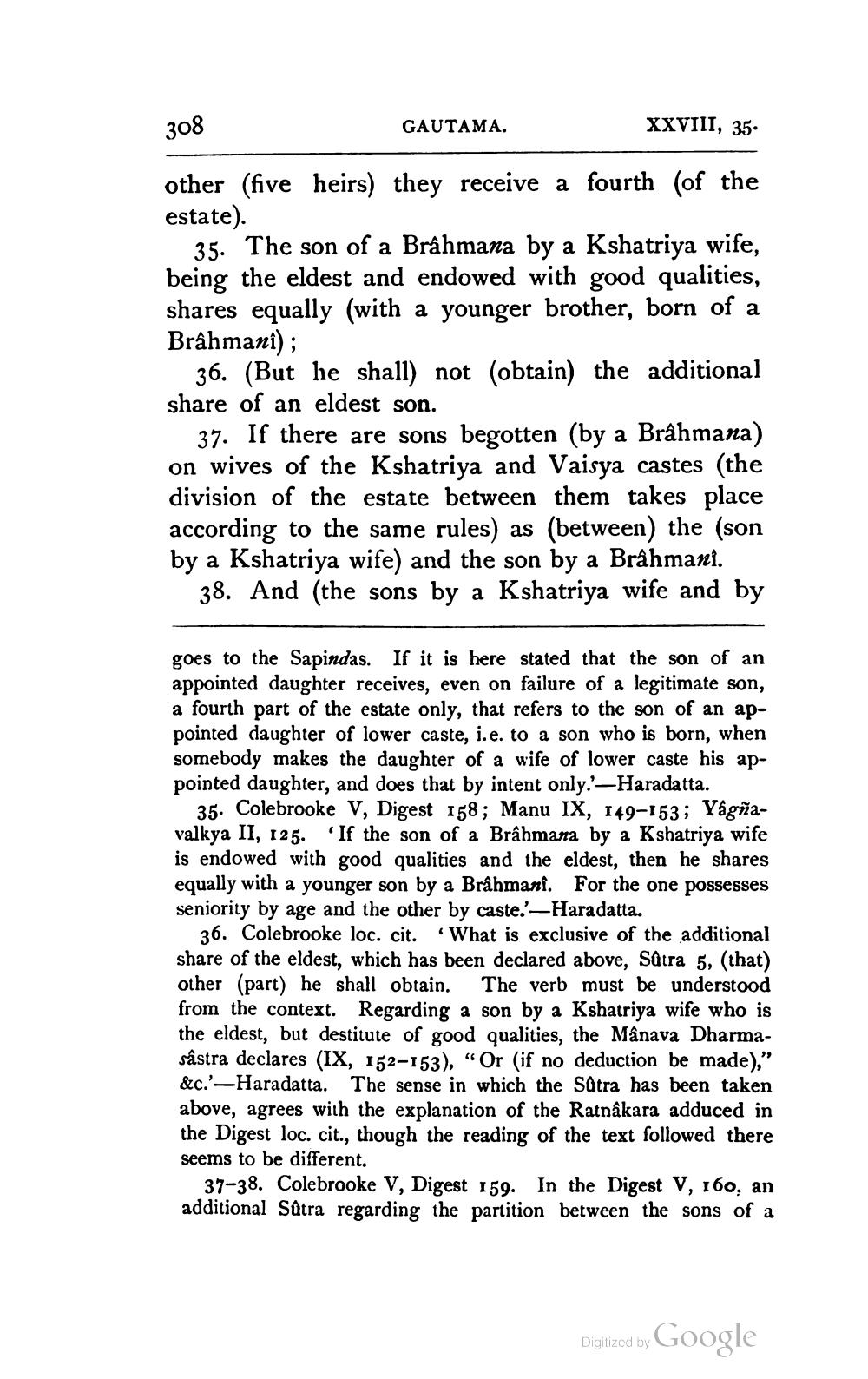________________
308
GAUTAMA.
XXVIII, 35.
other (five heirs) they receive a fourth (of the estate).
35. The son of a Brâhmana by a Kshatriya wife, being the eldest and endowed with good qualities, shares equally (with a younger brother, born of a Brâhmani);
36. (But he shall) not (obtain) the additional share of an eldest son.
37. If there are sons begotten (by a Brahmana) on wives of the Kshatriya and Vaisya castes (the division of the estate between them takes place according to the same rules) as (between) the (son by a Kshatriya wife) and the son by a Brahmani.
38. And (the sons by a Kshatriya wife and by
goes to the Sapindas. If it is here stated that the son of an appointed daughter receives, even on failure of a legitimate son, a fourth part of the estate only, that refers to the son of an appointed daughter of lower caste, i.e. to a son who is born, when somebody makes the daughter of a wife of lower caste his appointed daughter, and does that by intent only.' -Haradatta.
35. Colebrooke V, Digest 158; Manu IX, 149-153; Yagñavalkya II, 125. If the son of a Brahmana by a Kshatriya wife is endowed with good qualities and the eldest, then he shares equally with a younger son by a Brâhmanî. For the one possesses seniority by age and the other by caste.'—Haradatta.
36. Colebrooke loc. cit. What is exclusive of the additional share of the eldest, which has been declared above, Satra 5, (that) other (part) he shall obtain. The verb must be understood from the context. Regarding a son by a Kshatriya wife who is the eldest, but destitute of good qualities, the Mânava Dharmasastra declares (IX, 152-153), “Or (if no deduction be made)," &c.'-Haradatta. The sense in which the Satra has been taken above, agrees with the explanation of the Ratnakara adduced in the Digest loc. cit., though the reading of the text followed there seems to be different.
37-38. Colebrooke V, Digest 159. In the Digest V, 160, an additional Sūtra regarding the partition between the sons of a
Digized by Google




